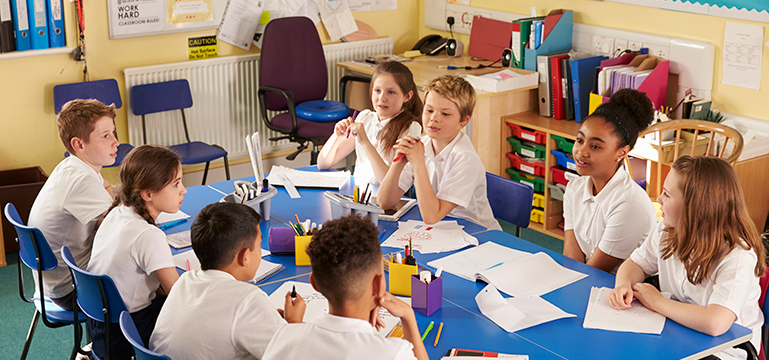Tag: Learners

Starting a conversation
We know that it can be difficult for some learners to talk openly and honestly about their experiences at school. We want to help, so in secondary and all age inspections we’ve developed a new approach for listening to learners to encourage more meaningful conversations about their experiences in school.
We adapted our methods as part of our work to gather feedback from learners about “their experiences of peer-on-peer sexual harassment among secondary school learners in Wales”.
What is our new approach?
Learners are at the heart of everything we do, so we:
- Create a comfortable environment. We invite learners to bring a friend to the session, which encourages them to be open and share with us their experiences in school.
- Reassure learners that what they talk about will be collected together and key themes will be shared anonymously. We won’t usually share learners’ comments with school staff or anyone else outside Estyn, unless we’re worried about their safety.
Activities
We use a series of activities to open our conversations, including:
- Learner voice jars – learners write their views anonymously on post-its, without needing to speak in front of their peers. This is particularly successful when we’re asking difficult questions like ‘Do learners behave well in your school?’ and ‘Do learners get bullied in your school?’.
- Stop, start, continue – learners write down what they think their school should stop doing, start doing and continue to do. This could include any aspect of the school, for example teaching, behaviour, and well-being.
- I want my school to know – learners share information that they think is important for their school to know. It could be an open comment that may be positive or negative, or it could be about a specific inspection area (for example, aspects of the curriculum, safeguarding or pupil well-being).
- Whiteboards – these can provide an open forum for learners. In “Emoji Madness” learners draw an emoji to explain how they feel about specific aspects of the school’s work. The learners’ responses often lead to more discussion around a topic.
How is it making a difference?
When learners feel comfortable, they’re more open about their experiences, which gives us a better insight into their views and concerns. Since piloting these approaches, we’ve noticed that a larger proportion of learners are more willing to share their feedback with us. Giving learners an independent voice helps us to drive real change in education in Wales and improvements in our work.

